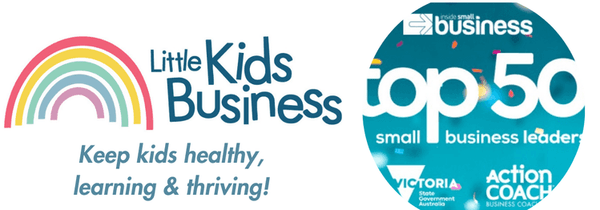When, how and what exactly do you want your child to find out about sex? Sex and relationship counsellor and TEDx speaker Dr. Oberdan Marianetti helps us share tips on how to broach sexual education with our kids.
Children will understand that baby Animals are created when Animals mate. Thus will be their first introduction to Sex in many cases. As adults we must provide our children the space to openly and unashamedly address sex-related topics and reassure them that sex is natural, and it is ok to talk about it. Sex education can be seen as teaching about a range of topics, including the below.
1. intimate relationships
2.human sexual anatomy
3. sexual reproduction
4. sexually transmitted infections
5. sexual activity
6. sexual orientation
7. gender identity
8. abstinence
9. contraception
10. and reproductive rights and responsibilities.
The truth, however, is that most adults do not shy away from talking about sex to their children which can place their child in harms way.
Why aren’t we talking to kids about sex?
There are many deep and varied reasons why we do not address sex with our children.
1.Sometimes we lack the required knowledge. Most adults have never received sexual education.
2.We lack the vocabulary and confidence to comfortably and naturally address this most sensitive of topics, and the practice to hone it.
3.Some may worry that the information itself may be inherently damaging, or that it will encourage sexual activity.
4.Others hold cultural, familial, social or religious beliefs and attitudes that make us feel shame when talking about sex.
These are all valid reasons, but it is time we consider the impact they are having on our children.
Why we should talk to kids about sex
In my view there are three main reasons to start the sex-education talk now:
- Most people will eventually have sex
- Ignorance increases risks
- Education creates healthier behaviours
Let's look at some Australian Statistics
Generally teenagers become sexually active between Grade 10 till 12 and onwards.
- Just over 1 in 15 said that they had sex for the first time at age 14 or younger.
- Around 1 in 10 said they first had sex at age 15.
- 1 in six reported having sex for the first time at age 16 or 17
Adapted from the WA Child Health Survey: Youth Self-report (15–16 years).
According to the 2018 National Survey of School Student and Sexual Health
1. touching one's own genitals was the most common sexual behaviour (89%),
2. followed by deep kissing (74%)
3. being touched on the genitals (66%) or touching a partner's genitals (65%)
4. and around half reported having engaged in oral sex at least once.
Figure 5.2: Age first had sexual intercourse, 16-17 year olds in 2016

Notes: n = 1,469 boys and 1,434 girls.
Credit: Longitudinal Study of Australian Children 2019 (
Sex education is compulsory for students from Prep (Foundation) to Year 10 in Australia.
All school-based programs are age-appropriate, and cover not just anatomy, puberty and reproduction but also body safety (protective behaviours), respect, friendships and the risks of technology. All courses are devised in line with the Curriculum, and are run with sensitivity, patience and humour.
Multiple studies published in the last decade point to the beneficial outcomes of sex education:
- Delayed sexual initiation
- Reduced number of partners
- Increased contraception use
- Reduced unprotected sex
- Reduced STIs
- Reduced teenage pregnancies
How to talk about sex with your children
Talking to children about sex need not to be as daunting as we imagine. Here are a few tips on how to go about it.
- Work through your own barriers to lose the discomfort
- Discuss and explore strategies with your partner
- Learn the required knowledge from reputable sources
- At home focus on your values first, and add the relevant knowledge
- Stay child-centric and provide appropriate, simple answers
- Have many conversations
- Remember, everything you do /say or don’t do /say also communicates about sexuality
- Use multiple sources: books, conversations, internet, talks, events
- Don’t wait for questions to be asked
An age-by-age guide of talking to your kids about sex
Age 0-2 years old
From 0 to 2 years of age children do not have the gift of language, and yet they are equally influenced by your attitudes and behaviours about sex. Many parents would have observed their infants touching their genitals at some point while changing nappies. The reaction from parents, unfortunately, is often one of shame and gentle reprimand. No spoken language is required, but the child has just begun to learn that pleasure and touching one’s genitals are not appropriate. A useful response would be to acknowledge the act and name the body parts. The same way in which we say, “oh, that’s your nose” we can say “oh, that’s your penis/vulva.”
Age 3-6 years old
In early childhood (3 to 6), curiosity is at the centre of the child’s world, language is developing fast and the ‘why’ questions flow freely. It’s important not to shy away from the sexual questions and to keep the answers short and simple. Remember, at this stage children understand literal language, so long-winded answers may end up confusing them. Self-touching may continue, and because they have yet to fully develop a sense of privacy, they may do so in front of others. Take this as an opportunity to reinforce the concept of privacy.
Age 7-12 years old
In middle childhood (7 to 12) strong external influences appear. Keep a watchful eye and an open heart, and expect the unexpected comments /questions /behaviours. Puberty is around the corner. Teach the basics before its onset – including first periods and first ejaculations – to avoid unpleasant experiences. Sexual education may become available in your child’s school. Become involved and enquire about its content. If your child is given an Internet-enabled device, start opening the dialogue on the appropriate use of online content.
Age 13-19 years old
Adolescence (13 to 19) is a period of great physical, intellectual and emotional changes. Reassure your child that everything that is happening is normal. External pressures are at their strongest; pressure to be sexual may be real. Reinforce your presence as a point of reference and support. Sense of identity is stronger and a desire to be independent may emerge. Offer your ‘hand’ no matter what, and accept your child’s separateness from you. Masturbation may be a regular part of life. Avoid shaming, judging or embarrassing.
A significant portion of children will experience partnered sexual activities, including intercourse. Missteps can be expected. Talk about safer sex before the onset. Also encourage talk about readiness, consent and abstinence.
Regardless of the stage of life – your children’s and yours – you are in, my number one recommendation is that you start a dialogue. Tread carefully and know that you will make mistakes. It’s ok, we all do when starting something new.
Recommended Resources on Sex Education:
Books
- My body! What I say goes!
- I said no! A Kid-to-Kid Guide to Keeping Private Parts Private
- Where did I come from?
- Who’s in a Family?
- Some secrets should never be kept
- It’s not the stork!
- No means no!
- It’s Perfectly Normal: Changing Bodies, Growing Up, Sex, and Sexual Health
- It’s so Amazing! A Book about Eggs, Sperm, Birth, Babies, and Families
- Let’s Talk about Girls, Boys, Babies, Bodies, Families and Friends
- Sex, Puberty and All That Stuff: A Guide to Growing Up



